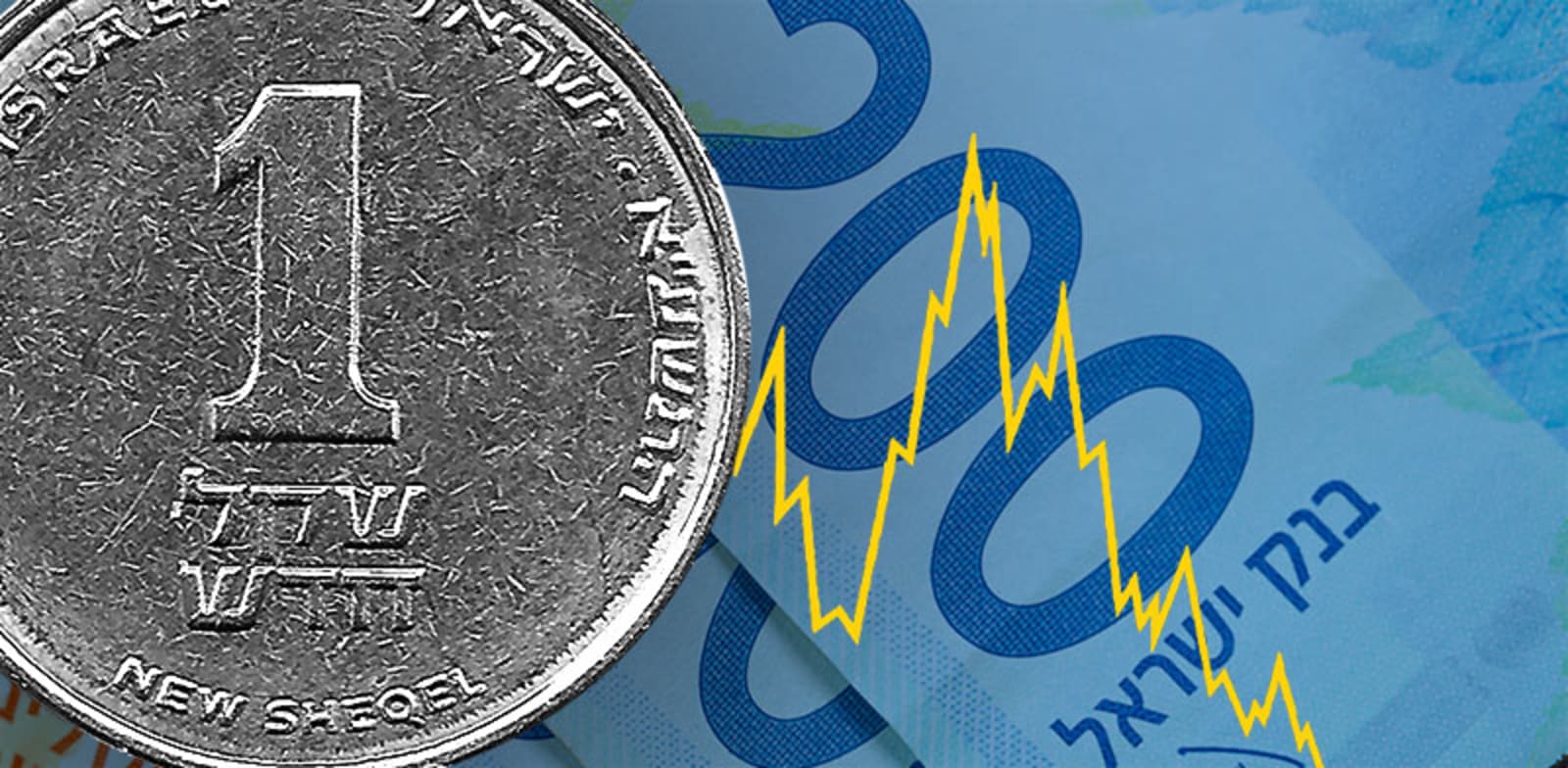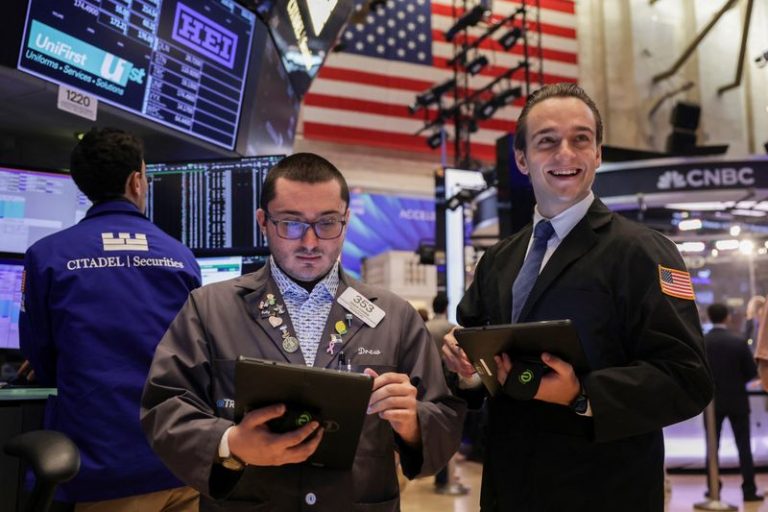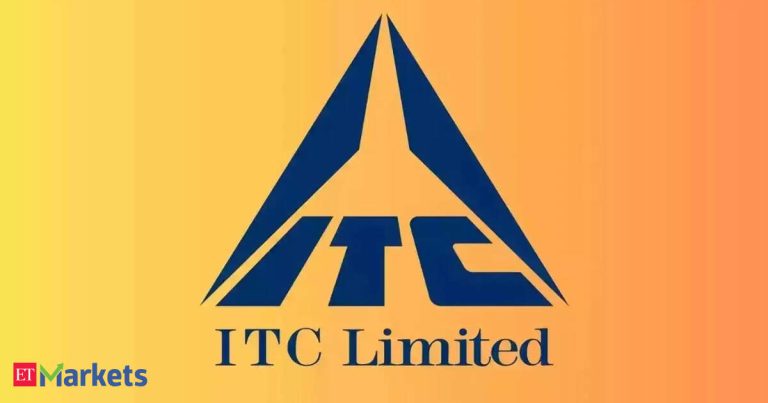Within a few hours yesterday, the shekel switched direction, and weakened against the US dollar by more than 1.5%, while, globally, the price of oil rose by 6%. Both developments look like the result of growing fears among investors that Israel will attack Iran. This morning, the Tel Aviv Stock Exchange indices opened on steep falls, of between 2% and 3%, although the falls moderated towards the close.
The shekel-dollar exchange rate, which had been fairly dormant in the past week, at around NIS 3.49/$, jumped yesterday evening, and is currently at NIS 3.56/$.
The price of oil jumped from $65 a barrel yesterday to $69, apparently because of investors’ fears of the possibility that an attack on Iran’s nuclear installations could be accompanied by an attack on its refineries, in an attempt to weaken the Iranian regime’s ability to fight. Since yesterday, the oil price has moderated a little (to about $68 a barrel), but it is still up 7% for the week. Since the last low, a little over a month ago, when the price of oil touched $57 a barrel amid fears of a global recession as a result of the US tariffs policy, it has risen by more than 20%. The price of gold has also risen in the past twenty-four hours, by 1.5% to $3,370 an ounce.
Among the new factors that weighed on investors’ minds yesterday were reports that the US had ordered the evacuation of staff from its embassy in Iraq, with the deadline set by President Trump for the negotiations with Iran in the background. In recent press interviews, the US president has sounded less hopeful than formerly about the prospects of reaching an agreement with Iran. In the past, Trump has said that if no agreement is reached, the US will lead an attack on Iran’s nuclear facilities, and that he will not allow the country to have nuclear weapons. This evening, the president said that he would prefer an agreement, but that an Israeli attack on Iran “could happen.”
How will the shekel be affected by a strike against Iran?
Bank Hapoalim chief financial markets strategist Modi Shafrir told “Globes” this morning, “In the past twenty-four hours, particularly yesterday evening, reports emerged that the US was evacuating embassies. Trump was quoted as saying that the US was prepared to attack if necessary, and there were headlines overseas to the effect that Israel was also ready for a strike on Iran. Although it could certainly be that these reports stem from Trump’s negotiating tactics vis-à-vis Iran, such headlines are in stark contrast to what there was at the beginning of the negotiations.
RELATED ARTICLES
“The US president said that an agreement was near, and now the message has become more hawkish on the part of the US administration, and also from Israel. All this finds expression in the rise in the price of oil, and in the weakening of the shekel in Israel.
“An attack by Israel will continue this trend in the short term, but not necessarily in the long term. If there’s a strike that really removes the Iranian threat, the shekel will weaken in the short term because of the fear of Iranian retaliation. But if the attack removes the Iranian nuclear cloud, that will be good in the longer term. It all depends, of course, on the outcome of the attack. If it isn’t good, that will be bad for Israel, for the shekel-dollar rate, and so forth.”
For all the fears, it’s no secret that in recent months, and in fact over the past eighteen months, the Tel Aviv Stock Exchange has displayed resilience and considerable optimism, despite all the developments in the war. The Tel Aviv 35 Index is up 12.5% for the year to date, and rose 0.1% this week.
It is not just the reaction of equities investors that’s important, however; bond indices are also an important indicator. The Tel Gov General Index was slightly down on the week, by 0.2%, but it is still in green territory for the year to date (0.5%). The index covers all Israel government bonds, and the yield to maturity that it implies stood at 3.69% this morning.
How does that look in relation to the past? It represents a fairly sharp rise from the level of 3.28% in the last low four months ago, and compares with a peak of 3.8% at the height of the panic last summer. The rise in the yield reflects a combination of investors’ fears of further security escalation, meaning a rise in the risk of Israel government bonds, and also of higher government expenditure that will necessitate raising more debt.
Another interesting index for measuring investors’ nervousness is the Tel Gov Shekel 10+, an index that covers the Israeli government’s longest tenor bonds, and hence also the riskiest ones for investors. This index responds more sharply to developments. It has fallen 1.8% in the past month, but is still up 0.8% for the year to date. The yield to maturity that it embodies stands at 4.8%. This compares with a low in February of 4.4%, and a peak of 5.5% last July.
Published by Globes, Israel business news – en.globes.co.il – on June 12, 2025.
© Copyright of Globes Publisher Itonut (1983) Ltd., 2025.







